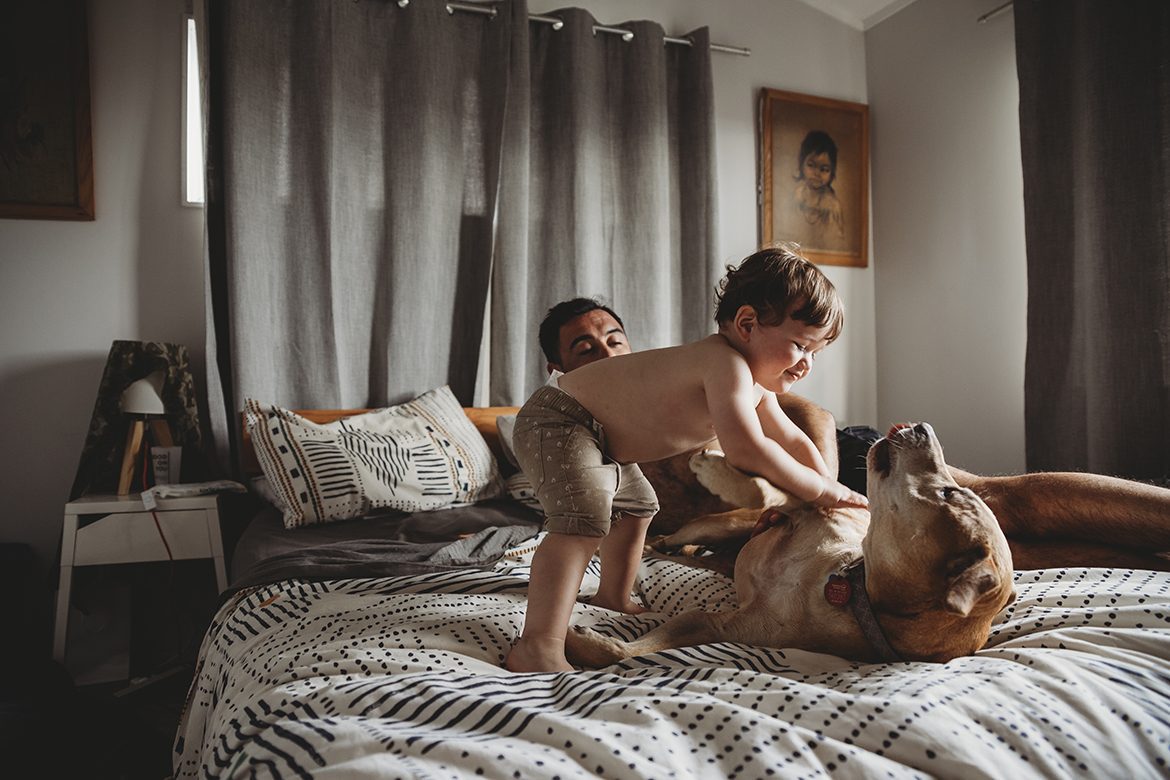By Dr. Laura Markham
“Dr. Laura….How will they know right from wrong when they are never taught something will happen when they do wrong? What should we do if one of the kids destroys property? What should we do if we tell them to do something and they don’t listen? What if they hit another kid?”- Kristin
Traditional parenting responds to the child’s misbehaviour by imposing a “consequence” that causes emotional or physical pain, so that the child will choose to avoid that consequence in the future by choosing different behaviour. But that assumes the child has the ability to regulate her emotions, and therefore her behaviour. In fact, experts increasingly agree that kids who exhibit “tough” behaviours actually don’t have the skills yet to self-regulate.
Loving guidance helps children develop those skills by:
- Setting limits on the child’s behaviour and giving the child whatever support is necessary to obey those limits.
- Emotion-coaching and preventive maintenance to help the child with challenging emotions, so they don’t drive her behaviour in the future.
- Helping the child repair damage to relationships or property, rather than punishing.
- Managing the environment to help the child be successful.
So is it possible to use loving guidance instead of punishment to keep problem behaviour from happening again? Let’s take Kristin’s examples.
If you tell your child to do something and she doesn’t listen, she may not have actually heard your request. It’s completely normal for young humans to be fully absorbed in what they’re doing, and not really take in what we’re telling them. And I’ve yet to meet a child who thinks that taking a bath “this minute” is more important than whatever she’s doing.
So the first rule is to connect BEFORE you start speaking. That means you can’t bark orders from across the room and expect to get through. Instead, move in close. Get down on your child’s level and touch her lightly. Observe what she’s doing and connect with her by making a comment about it: “Wow, look at that house you built for your animals!”. You aren’t manipulating, you’re acknowledging respect for her activities, too. Then, empathise: “I know it’s hard to stop playing now, Honey. And right now, I need you to…..”.
If you’ve asked once and not gotten a response, don’t just repeat yourself. You don’t have your child’s attention. Go back to Step One, above. (For more tips on this, see How to Get Your Child to LISTEN!)
I don’t consider “Not listening” to be a big deal. To me, that’s just normal child-like behaviour, best handled with a sense of humor. But maybe what Kristin meant isn’t so much listening, but obeying. What if you tell your child to do something and she willfully disobeys? That’s defiance. More on that in a moment.
If he hits another child, that’s a strong signal that he needs help with fear, since fear is what drives aggression. Is something at home scaring him, such as mom and dad fighting? Is TV showing him images that scare him, so he needs to act them out at school to process those feelings? Is he feeling scared because all the other kids seem to understand the math and he just feels dumb? Is he being taunted on the playground, or by his big brother? Is he worried about dad, who’s deployed? Is he rebelling against our punishment or yelling at home? Does he worry that you love his little sibling more?











